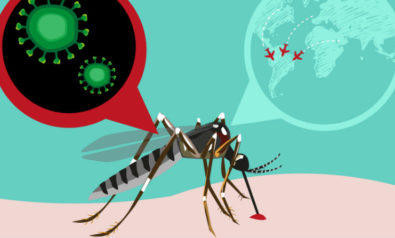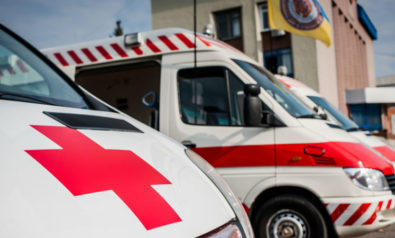An independent project is increasing access to healthcare in rural India.
A good quality healthcare system and access to it by the impoverished is a widely-discussed issue, with governments across the world working toward resolving it. India, with its population of approximately 1.2 billion people, is seeing an improvement in public healthcare but, with a population set to be the largest in the world by 2028, there is still much to be done.
A nation with such a large and diverse population faces a multitude of problems, and the government simply does not have the ability to take care of everyone. Sometimes political differences between the center and the states and bureaucratic red tape cause inefficiencies at various levels. This makes the employment of independent organizations without political affiliations essential for the livelihood goals of the nation’s poor and underrepresented citizens.
Sevak Project Takes Root
When Dr. Padmini Balagopal spent six months doing a lifestyle modification training with the villagers of Karakhdi, in Gujarat, India, she found a success in lifestyle modification excursion in lowering the rates of diabetes. A recent study lead by Dr. Anoop Misra of All India Institute of Medical Sciences, New Delhi, Dr. Ranjita Misra and Dr. Balagopal found the prevalence of diabetes in the urban setting to be 14% and 8% in the rural setting. These results were indicative of the tremendous amount of work that needed to be done in India to provide those living in rural areas with access to necessary treatment.
So Dr. Balagopal led sessions on dietary modification—increasing fiber, reducing fat and portion control—improving physical activity, and simple relaxing breathing techniques. This was reinforced through cooking demonstrations, recipe competitions and model meals. Further, avoidance of sweetened drinks and fried foods was emphasized.
With the knowledge that lifestyle modification did in fact contribute to disease prevention and overall wellbeing, the Sevak Project (which stands for Sanitation, Education, Village And Knowledge) took root. After finding 300 people with hypertension in Karakhdi, the dean of Baroda Medical College sent medicine to the village in a mobile van. While the staff and villagers were very grateful for this, it was simply not enough for people with ongoing illnesses.
As a result, Dr. Thakor Patel developed a solution which would utilize the United States Navy’s Independent Duty Corpsman (IDC) training protocol to teach villagers the basics of a working healthcare system, administration of medications, and routine medical checkups in order to extend these seven days to a lifetime.
The Sevak Project is an independent, unaffiliated organization dedicated to increasing access to healthcare in rural India and raising the living standards of India’s most impoverished and underrepresented citizens. The project, which has its foundations in the Gandhian philosophy of one individual from the village being responsible for his or her own villages’ healthcare, demonstrates that it has the potential to be a viable solution to the lack of access to health care in India and other developing countries.
Empowering Local Communities
The Sevak Project has been implemented in 40 villages spread across various districts of Gujarat, India. In India, the Sevaks are the designated persons responsible for the healthcare in their respective villages. They undergo a training based on the IDC model for two months instead of twelve months as required for the IDC.
This deviation in training norms is necessary because, given a diverse village system and population, the criteria for a Sevak must be both sufficient and achievable. A Sevak is required to live in the village in which he or she works and have a minimum of a high school education. The training in healthcare is provided by the local medical school staff as well as Sevak coordinators. They also receive training in sanitation, water purification, prevention of diarrheal diseases, infectious diseases, chronic medical conditions and lifestyle modification. They are trained to take blood pressure and blood sugar measurements as well.
The Sevak Project can be easily replicated in any part of India and the developing world. Sevaks are reliable and flexible and can perform beyond their stated role in healthcare. They can be taught disaster management solutions in situations including, but not limited to, flood, famine, earthquake and epidemics.
After training is complete, part of the Sevaks’ routine is to go house to house, screening people. Those found with pre-hypertension, hypertension, pre-diabetes or diabetes are provided lifestyle modification education and if blood pressure (BP) or fasting blood sugar (FBS) is too high, are referred to doctors. The Sevaks also check BP and FBS in those who have established diabetes or hypertension and provide them with lifestyle modification education. All Sevaks have been provided with simple medical literature and brochures for reference to help them distinguish amongst illnesses and when/how to diagnose and refer patients to primary health clinic.
The state of Gujarat is divided into four zones: north, south, central and west. Each zone has a coordinator whose job it is to visit the village in his or her zone once a month and provide any logistics support including, but not limited to, survey forms, stylets, strips and repair needs. Coordinators also collect the survey forms from the Sevaks to input into an Excel file and send it to Patel for reference and documentation.
To date, data has been collected from about 35,000 people showing the prevalence of diabetes to be 5.8 %. It was seen that 3.4% of those with diabetes did not know they had it, 9.6% of the sample size had pre-diabetes, 10% with hypertension and 15.9% had prehypertension. In addition, the Sevak Project has collected data on sources of drinking water, energy sources for cooking, education level and toilets/sanitation system usage.
Since the project started the number of toilets have doubled in every village and the awareness on diabetes, hypertension and other diseases has increased. In two villages, 100% of the families have toilets, and a reverse osmosis plant was installed in one village. The second one is being planned. This work was accomplished with the help of WHEELS Global Foundation USA in conjunction with Habitat for Humanity India. WHEELS has also contributed to the construction of the reverse osmosis plant. The plan is to have all Sevak operated villages equipped with toilets, and clean drinking water. The Sevaks have been provided laptops which they use for data entry and education. The American Heart Association has also provided the Sevaks with pediatric medical training to save children’s lives below the age of five.
Health Franchise
The Sevak Project can be easily replicated in any part of India and the developing world. Sevaks are reliable and flexible and can perform beyond their stated role in healthcare. They can be taught disaster management solutions in situations including, but not limited to, flood, famine, earthquake and epidemics. The Sevaks have brought awareness for BP, diabetes, need for clean drinking water, need for vaccinating all children and the use of toilets. This can only be accomplished by someone who lives in the village, knows the people and is sensitive to the problems they face.
To this end there has been a tremendous amount of work done, with the help of WHEELS and Habitat for Humanity, to build toilets and get clean drinking water for the villages. A partnership between WHEELS and Indian Institute of Technology Gandhinagar (IITGN) to do research for pre-fabricated toilets and huts, matrices for water purification, and solar/alternative energy-powered insulin coolers is also in place. It is to the credit of Ruyintan Mehta of WHEELS and the director of IITGN, Sudhir Jain, who decided to do this research to improve habitation, sanitation and clean drinking water.
Moreover, the model can be modified to add other capabilities such as disaster and epidemic management. The Sevak Project has shown that it can be implemented in a short time anywhere in India and the world with training the local folks who will look after their own community.
The views expressed in this article are the author’s own and do not necessarily reflect Fair Observer’s editorial policy.
Photo Credit: BDphoto
 We bring you perspectives from around the world. Help us to inform and educate. Your donation is tax-deductible. Join over 400 people to become a donor or you could choose to be a sponsor.
We bring you perspectives from around the world. Help us to inform and educate. Your donation is tax-deductible. Join over 400 people to become a donor or you could choose to be a sponsor.
Support Fair Observer
We rely on your support for our independence, diversity and quality.
For more than 10 years, Fair Observer has been free, fair and independent. No billionaire owns us, no advertisers control us. We are a reader-supported nonprofit. Unlike many other publications, we keep our content free for readers regardless of where they live or whether they can afford to pay. We have no paywalls and no ads.
In the post-truth era of fake news, echo chambers and filter bubbles, we publish a plurality of perspectives from around the world. Anyone can publish with us, but everyone goes through a rigorous editorial process. So, you get fact-checked, well-reasoned content instead of noise.
We publish 2,500+ voices from 90+ countries. We also conduct education and training programs
on subjects ranging from digital media and journalism to writing and critical thinking. This
doesn’t come cheap. Servers, editors, trainers and web developers cost
money.
Please consider supporting us on a regular basis as a recurring donor or a
sustaining member.
Will you support FO’s journalism?
We rely on your support for our independence, diversity and quality.

















